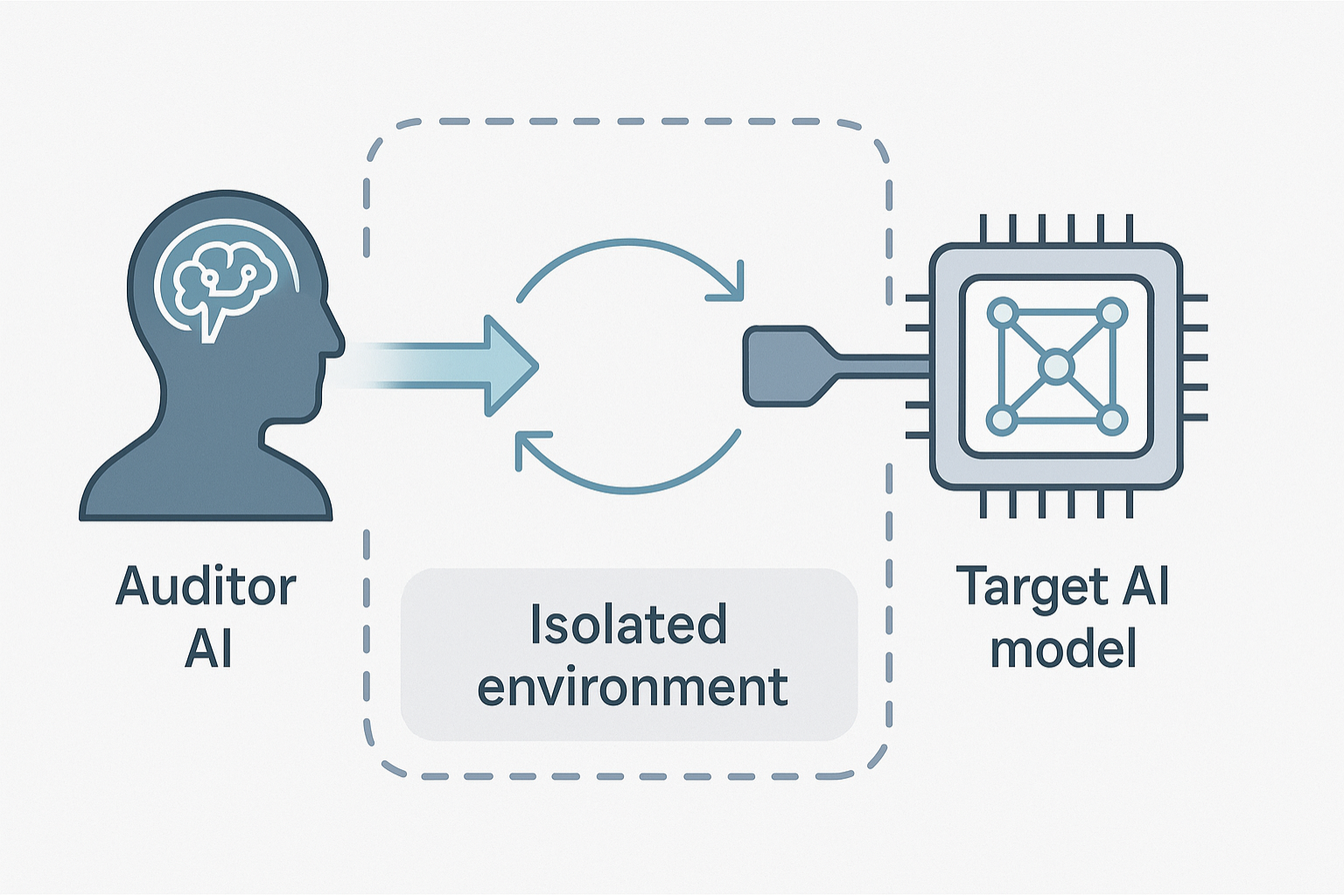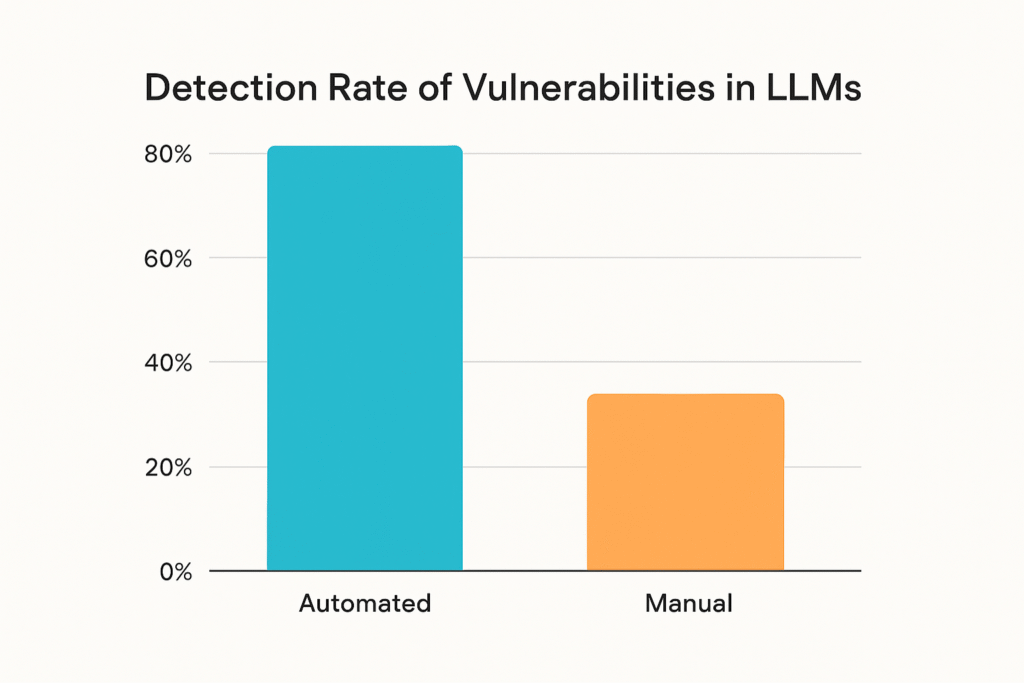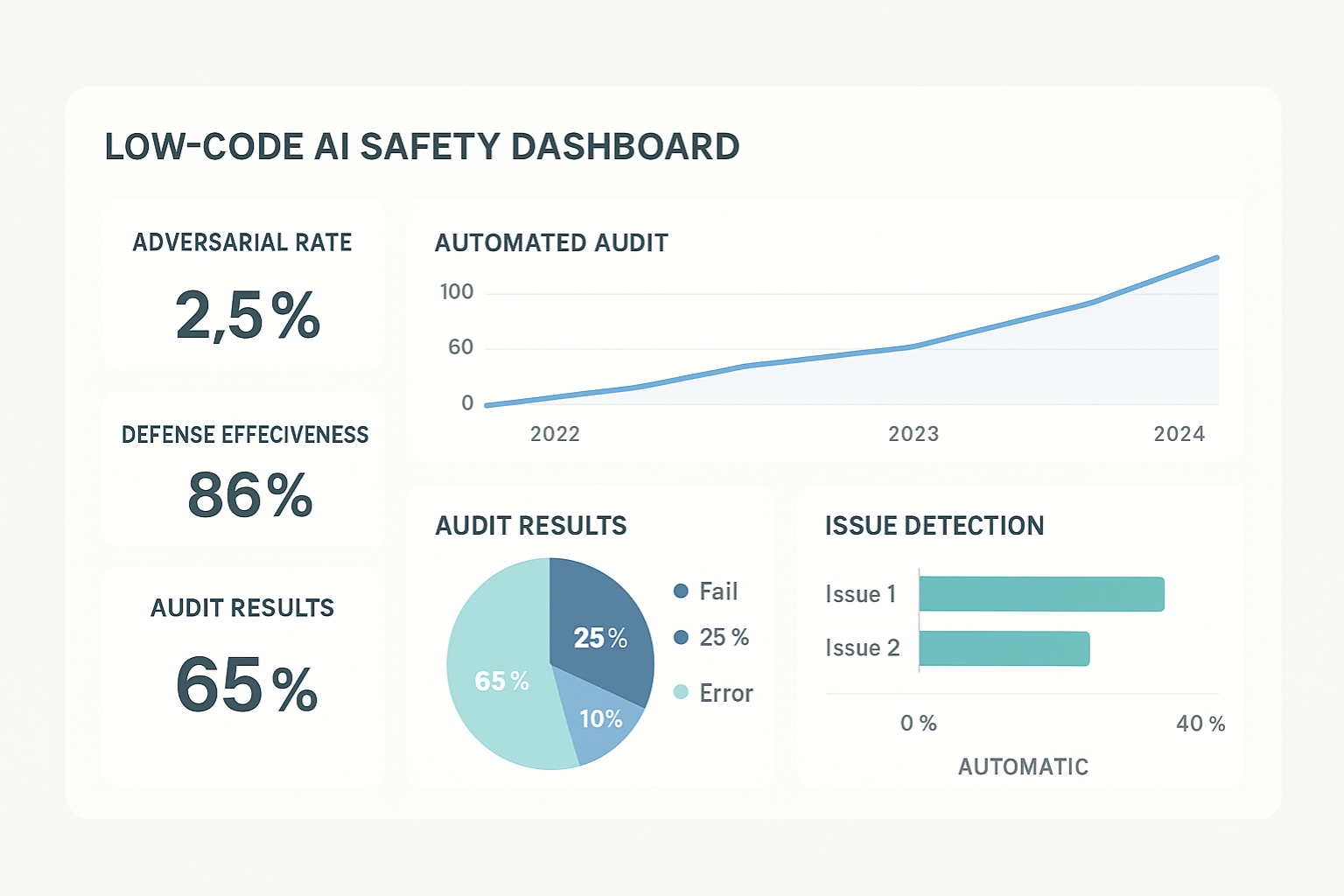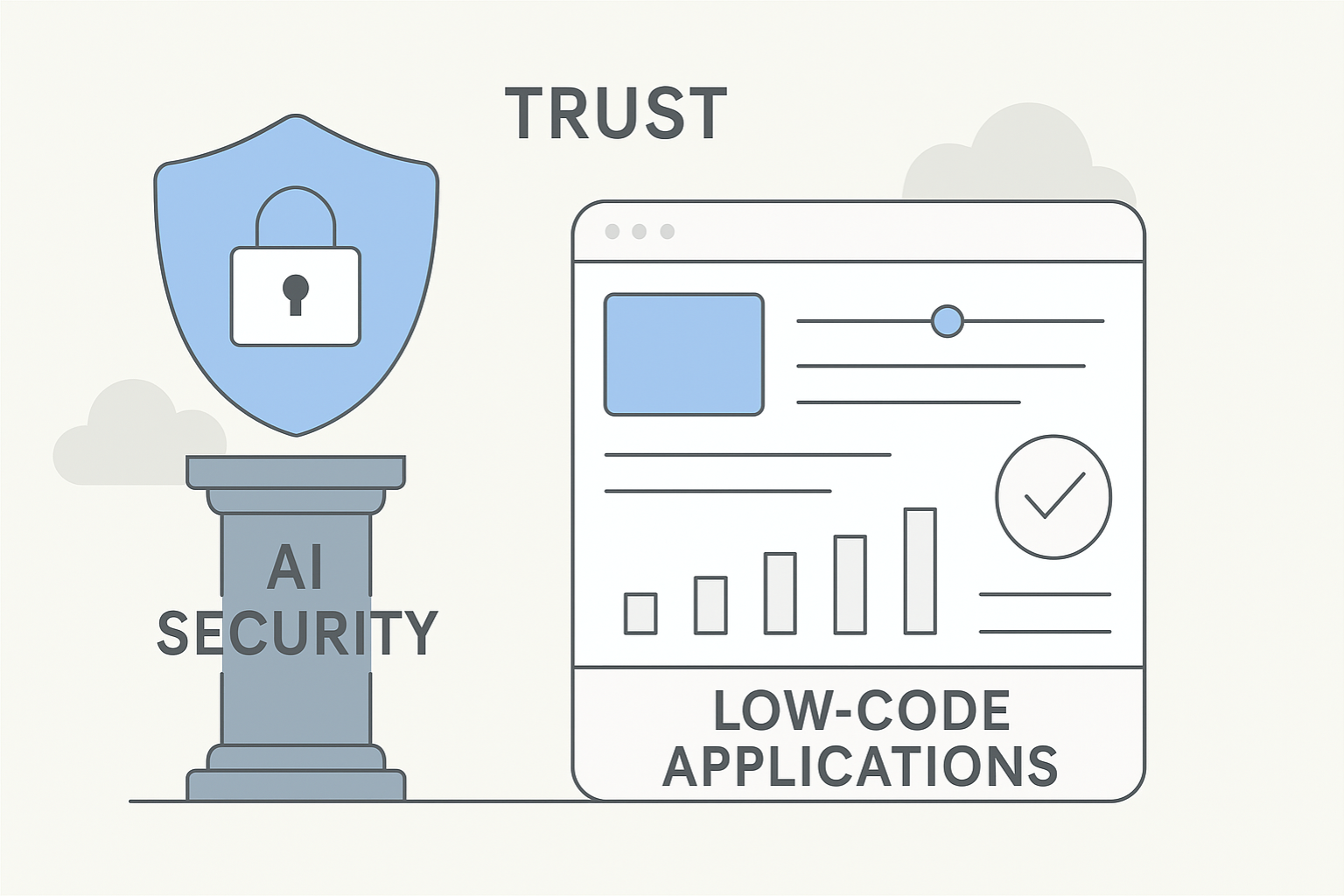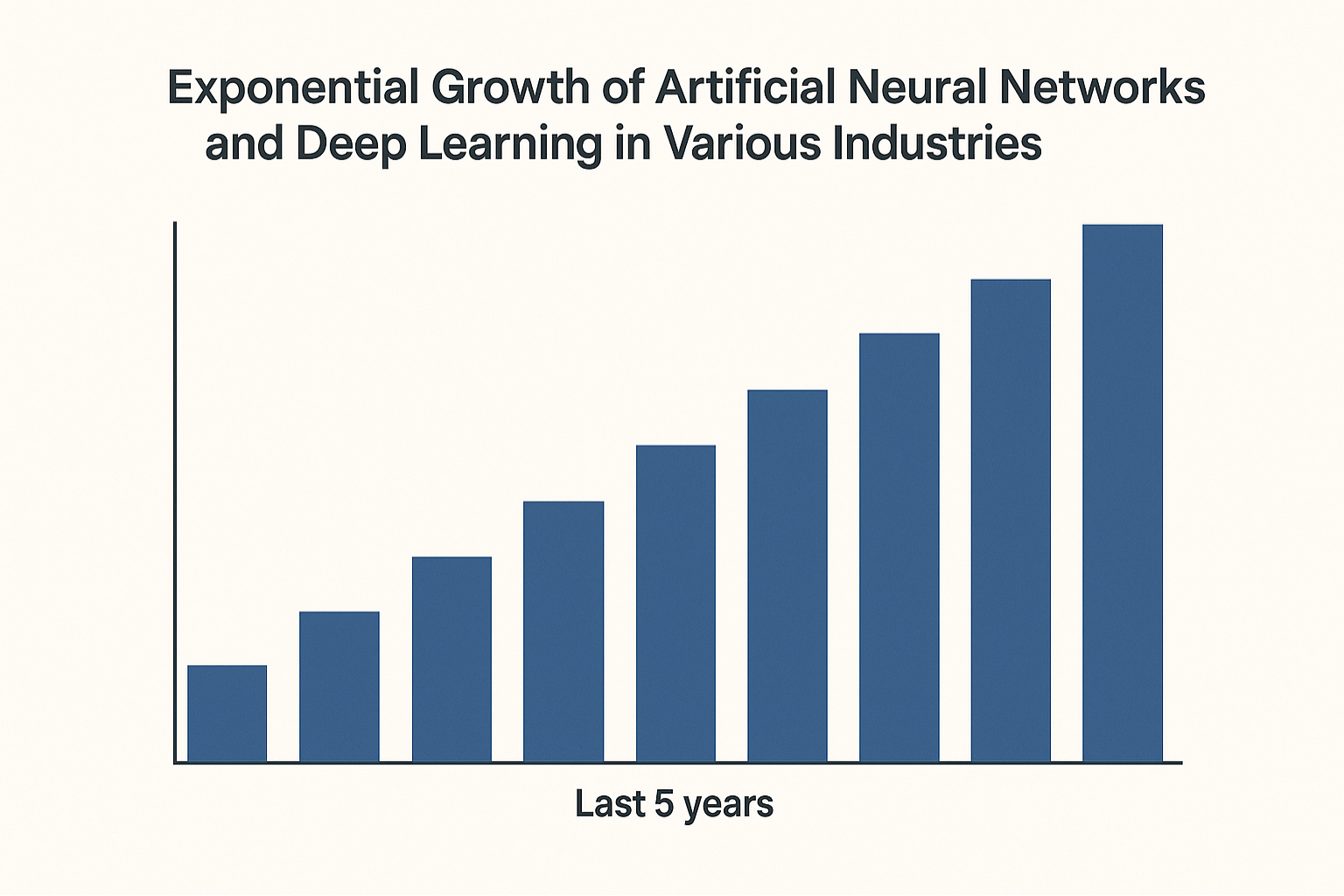In the world of digital innovation, the Vision AI, Visual Artificial Intelligence, or Visual Artificial Intelligence, is fundamental to transforming businesses. For the modern entrepreneur, the ability to give "vision" to systems is the most critical frontier.
What once required teams of data scientists training models for months, today boils down to the intelligent integration of managed services, accessible via Low-Code and No-Code platforms.
This article is a deep dive into Vision AI, exploring fundamentals, valuable applications for startups and the practical path of no-code implementation which is revolutionizing the interaction with visual data.
The relevance of this field is not limited to large corporations; it lies, essentially, in its democratization.
O advances in cloud technology, By providing robust and user-friendly APIs, it enables the extraction of insights Making the use of documents, images, and videos a reality for any founder who masters the... right tools.
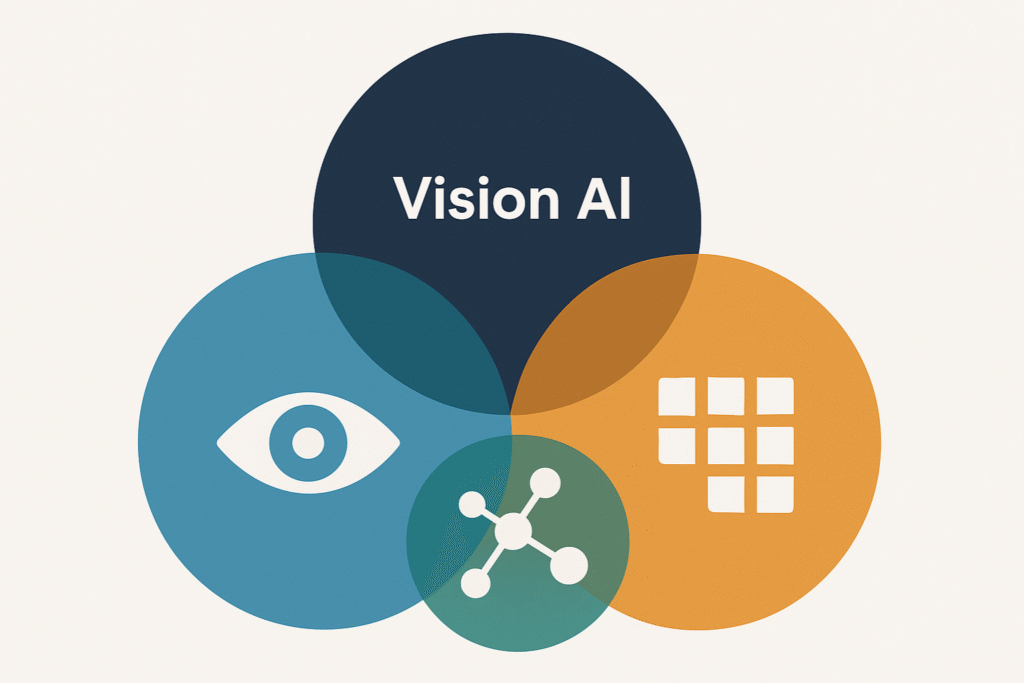
What Defines Vision AI: Fundamentals of Visual Artificial Intelligence
THE Vision AI It is a field of Artificial Intelligence dedicated to enabling machines to interpret, understand, and make decisions based on visual data.
This term acts as an umbrella, encompassing various disciplines and techniques that give systems the human capacity to see, process, and react to the visual environment.
Its strategic importance has grown exponentially as the amount of unstructured data (such as photos and videos) has become the primary volume of information generated in the world.
This technology is vital for anyone looking to optimize processes and build scalable products.
Computer Vision vs. Vision AI: Understanding the Evolution
Although the terms are often used synonymously, Computer Vision is the academic and technical field that studies how machines can obtain understanding images and videos.
Already the Visual Artificial Intelligence (Vision AI) represents the practical and integrated application of these models in commercial systems and products.
In other words, Computer Vision focuses on theory and algorithms (edge detection, feature extraction), while the Vision AI focus on solution and in the final product (an API that returns the description of an image or a model that classifies objects in a production line).
The distinction is crucial for the No-Code entrepreneur. They don't need to master the mathematics behind Computer Vision, but rather understand how to consume the services of... Vision AI ready-made solutions that encapsulate this complexity.
Key Components: From Neural Networks to Pre-Trained Models
To function, the Vision AI depends fundamentally on algorithms Visual Machine Learning, in particular the Convolutional Neural Networks (CNNs).
These networks are designed to process pixel data, learning hierarchically to recognize increasingly complex patterns—from lines and colors to shapes and, finally, entire objects (such as a car, a face, or a document).
The key difference that propelled the Low-Code movement was the emergence of Vision Models pre-trained tools, such as the Google Cloud Vision API or the Azure AI Vision.
These models have already been exposed to billions of images, allowing the No-Code developer Simply send an image to the API and receive complex results, such as object detection, content moderation, facial recognition, or text localization (OCR), without the need for initial training.
This eliminates the biggest barrier to entry: obtaining and labeling large volumes of training data and the computing time.
Why Vision AI is the Essential Tool for the No-Code Entrepreneur
Adopting cutting-edge technologies is always a matter of cost-benefit, and for a startup or SME, the return on investment (ROI) needs to be quick and noticeable.
This is where the movement of Vision AI When aligned with Low-Code, it becomes unbeatable. By automating repetitive tasks and those based on visual inspection, technology shifts the focus of human resources to strategic activities.
Breaking Down the Barrier to Entry: Reduced Complexity and Cost
Historically, implementing solutions of Visual Artificial Intelligence It was a massive infrastructure project.
Today, great players IT companies offer managed services, providing models of Computer Vision like an off-the-shelf product. The No Code Startup has emphasized the importance of using pre-existing AI infrastructure services, and this is a perfect application (read more in our article about it). What is AI infrastructure and why is it essential?).
This abstraction means that the founder can connect, for example, an application built in FlutterFlow (a low-code platform) directly to an API of Vision AI, paying only for usage.
This paradigm shift from Capex (capital investment) to Opex (operating cost) is what makes development agile and financially sustainable for any business in its growth phase.
Initial credit and affordable pricing plans encourage adoption, overcoming initial barriers of complexity and cost.
Accelerating ROI with Real-Time Image Analysis using Vision AI
The value of Vision AI It is generated when visual information is transformed into an action or decision.
A system that uses Pattern Recognition Identifying a defective product on a production line, for example, generates an immediate ROI by reducing waste and rework.
For the service industry, speed is everything. Imagine an insurance app that allows a customer to take a picture of damage and, in seconds, the... Vision AI It classifies the severity of the damage and initiates the claims process, without initial human intervention.
This process automation not only reduces the company's operating costs, but also dramatically improves the customer experience, an invaluable differentiating factor in the digital market.

Practical and Transformative Use Cases of Image Analysis with AI
The diversity of applications of Vision AI It allows almost any sector to find an opportunity for innovation.
For the No-Code entrepreneur, identifying the right use case—one that can be solved with a pre-trained API or a simplified auto-ML model—is key to traction.
Document Automation (OCR) and its Impact on Productivity
One of the most accessible and high-value use cases is Intelligent Document Processing (IDP), which is based on Optical Character Recognition technology, or OCR Document.
For companies that deal with invoices, receipts, handwritten forms, or tax invoices, converting this visual data into structured data was a bottleneck.
THE Vision AI Modern technology goes beyond simple OCR: it can understand the context and the structure from the document, locating specific fields such as "CNPJ", "Due Date" or "Total Amount" with high precision, even in varied layouts.
A no-code application can capture an image of a receipt and send it to the API. Vision AI and then register the information in the database, activating a payment automation.
If you want to learn how to handle data analysis in general, check out our guide on... AI for no-code data analysis.
Pattern Recognition for Logistics and Retail using Vision AI
In the retail and logistics sector, the Visual Artificial Intelligence is revolutionizing inventory management and security. A system of Vision AI he can:
- Inventory Count: Using cameras to monitor shelves and automatically count the number of items, alerting when restocking is needed.
- Quality Assurance: In e-commerce warehouses, check if a product's packaging is damaged before shipping.
- Shelf Monitoring: Detect gaps in supermarket gondolas to optimize the layout.
A practical example is the use of cameras on assembly lines to verify that all the components of a product, such as in a cell phone (similar to what the Samsung does this with its Vision AI.), are correctly positioned.
O Pattern Recognition This ensures quality and consistency on a large scale, something unthinkable to do manually.

Product Research and Customer Experience Systems
Cloud Vision's Product Research is a great example of how... Vision AI Enhances the customer experience in e-commerce.
The user can upload a photo of an item (such as a shoe or a piece of clothing) and the system... Vision AI Returns visually similar products from the catalog.
This feature, known as "visual search," is a powerful conversion engine because eliminates the barrier of textual description.
The adoption of technologies Visual Machine Learning Search engine optimization has shown a significant improvement in click-through rates and customer satisfaction.
Implementing this feature via low-code, connecting your app's image gallery to a visual search API, transforms a basic online store into a cutting-edge shopping experience.
No-Code Implementation: The Vision AI Toolkit for Low-Code Developers
The real magic happens at the abstraction layer. The Low-Code developer isn't reinventing the wheel, but rather using pre-built components to create complex and customized solutions.
The key is to understand how the No-Code/Low-Code development tools interact with the services of Vision AI.
Integrating Vision APIs: Google Cloud Vision, Azure AI, and Other Platforms
The most direct way to start using the Vision AI It's through cloud provider APIs.
| Provider | Vision AI Solution | Typical Use for No-Code |
| Google Cloud | Vision AI (AutoML Vision, Vision API, Document OCR) | Customized image classification, text detection on receipts. |
| Microsoft Azure | Azure AI Vision (Computer Vision) | Image analysis for accessibility (description), face detection. |
| Amazon AWS | Amazon Rekognition | Content moderation in apps using UGC (User-Generated Content). |
These services provide endpoints Simple HTTPS that can be called directly from any platform. Low-code that supports API requests., like most modern tools.
The process involves: 1) Capturing the image in the application (for example, via the mobile phone camera); 2) Encoding the image in Base64 (or sending the URL); 3) Sending the request to the API. Vision AI; and 4) Process the JSON response.
The complexity of Pattern Recognition and of Visual Machine Learning It is entirely up to the provider.
The Role of Low-Code Tools in Connecting with Vision Models
Low-code development platforms, such as FlutterFlow and other robust tools (which we teach in...) AI Coding Training: Create Apps with AI and Low-Code), stand out for simplifying this integration.
They allow the developer to create the user interface (UI) and business logic (BL) without writing native code, configuring the API calls In a visual way.
This means that the entrepreneur can create a complete application, with functionality of Vision AI High-level service, in a matter of days or weeks.
For example, a workplace safety application could use a low-code tool to capture photos of the construction site and send them to an API that detects whether workers are wearing helmets (object detection)., automating inspection.
The agility of No-Code Implementation This is what transforms the potential of Vision AI in tangible results.
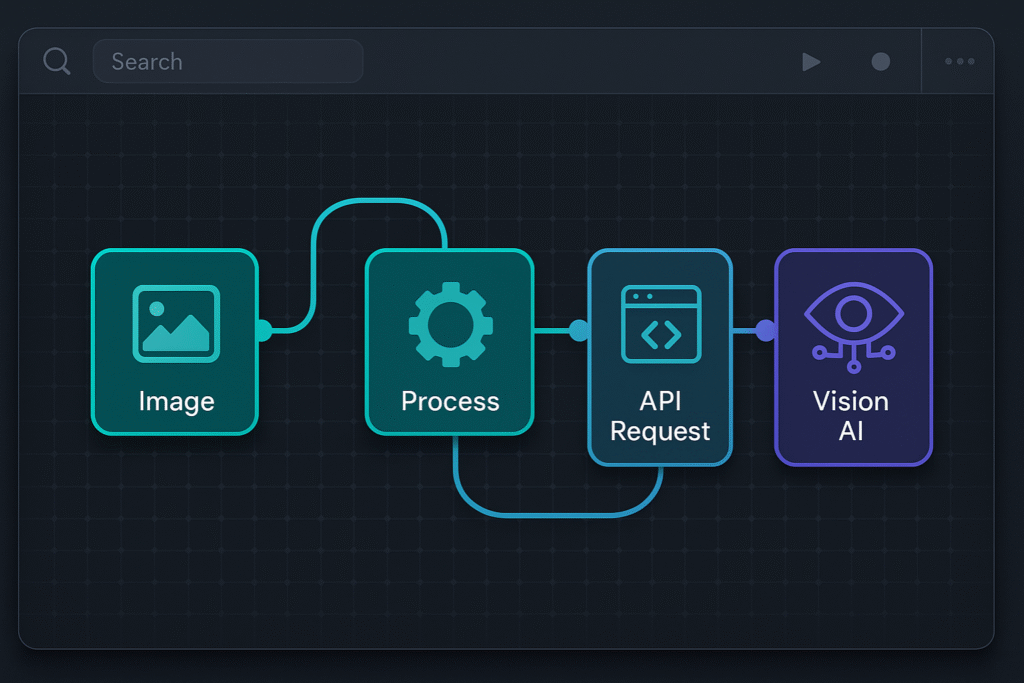
Overcoming Challenges and Next Steps on the Vision AI Journey
Despite the accessibility and undeniable power of Vision AI, Strategic implementation requires awareness of its challenges and limitations.
Technology is evolving, but it's not magic, and entrepreneurs need to know how to mitigate risks.
Ethics and Bias in Pattern Recognition Models
A central challenge in any system of Visual Artificial Intelligence and the algorithmic bias.
If a model has been trained predominantly with images of a single demographic group or lighting type, it will have difficulty (or even fail) to process images that deviate from that pattern.
This is a serious problem, especially in facial recognition systems or content moderation.
For the No-Code developer, the way forward is to be a consumer. conscious Regarding technology: choose providers with good responsible AI practices and, when using auto-ML models, ensure that the customized training data (although in smaller volumes) is as diverse and representative as possible of the real-world application scenario.
Scalability and the Necessary AI Infrastructure
Although the APIs of Vision AI To ensure they are easy to use, it's important to plan for scalability.
A startup that begins with 100 image analyses per day may soon need 10,000 or 100,000. This impacts the cost and requires a... AI infrastructure underlying that can handle the traffic and the latency.
Using low-code tools simplifies user management and frontend logic, but the decision about which API to use remains. Computer Vision How to use and architect the call (e.g., using functions) serverless (to mediate) is crucial for keeping costs under control and the application responsive.
This is a A reflection that transcends pure No-Code., venturing into the territory of strategic Low-Code.

Frequently Asked Questions About Vision AI and Its Future
What is Vision AI and how does it differ from traditional Computer Vision?
THE Vision AI It is the commercial and democratized application of Computer Vision.
While Computer Vision is the field of theoretical and algorithmic study, Vision AI This refers to ready-made products and services (such as APIs and pre-trained models) that companies can use to interpret images, transforming visual data into... insights actionable business strategies.
Can Vision AI be used by companies without programmers?
Yes, definitely. The advancement of Low-Code and No-Code platforms, along with APIs of Vision AI From major providers (Google, Azure, AWS), it allows entrepreneurs and developers to build complex applications from AI-powered image analysis through visual interfaces and pre-configured connectors.
THE No-Code Implementation It eliminates the need to write Machine Learning code.
What are the main challenges when adopting Visual Artificial Intelligence in a new project?
The primary challenges include cost management (which can increase rapidly with usage volume), the need to ensure data diversity and curation if training custom models, and mitigating algorithmic bias to ensure fair and accurate results in all situations. Pattern Recognition.
Where is Vision AI being used most today?
Currently, the Vision AI has strong adoption in Document Automation (invoice data extraction), Health (medical image analysis), Retail (shelf monitoring and visual inspection) and Logistics (quality inspection and inventory count).
It is becoming the backbone of any process that relies on the visual inspection of large volumes of data.

An entrepreneur's journey in the Low-Code universe is marked by the relentless pursuit of technological leverage.
THE Vision AI It represents exactly that: the lever to transform an ordinary digital product into a highly intelligent and differentiated market solution.
Instead of spending months and thousands of reais developing models of Computer Vision Starting from scratch, the Low-Code approach offers the ability to integrate this intelligence into your application or automation in just a few hours.
The future lies not only in creating prettier or faster apps, but in apps that see, understand, and act upon the world around them.
THE Visual Artificial Intelligence It's no longer a luxury for tech giants, but an accessible and indispensable tool for any startup that wants to dominate its niche.
The next logical step is to go beyond theory: it's time to get our hands dirty and start building.
If you're ready to integrate advanced features like this, explore the Low-Code ecosystem and vision APIs in depth.
You can, for example, start with the FlutterFlow Course and learn how to connect the mobile interface you develop to powerful models of Vision AI which we discussed here, ensuring that your next solution is no-code implementation be truly disruptive.



